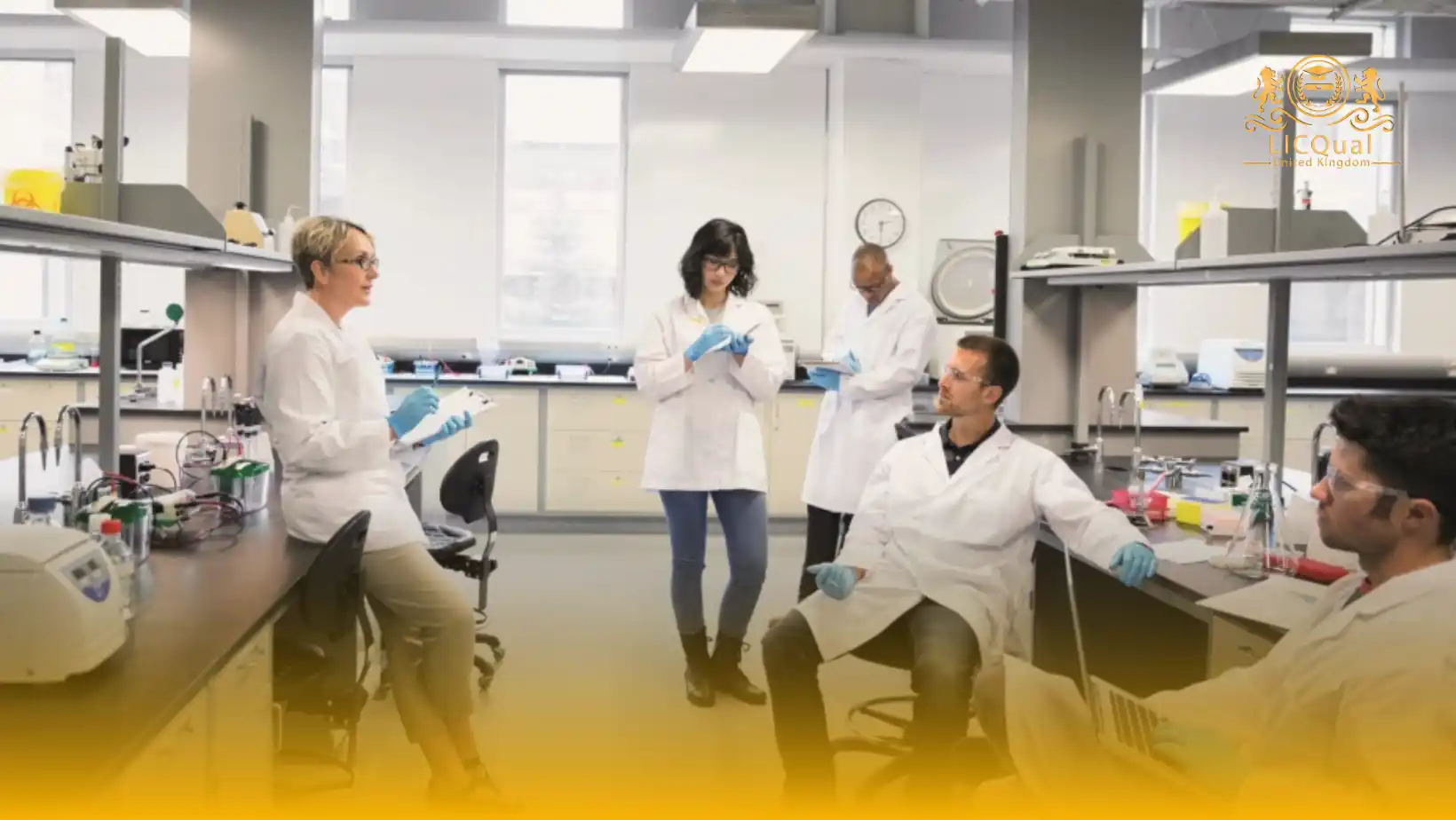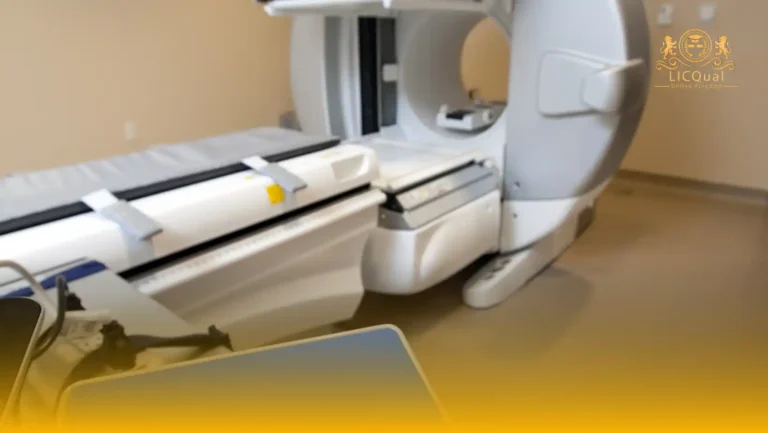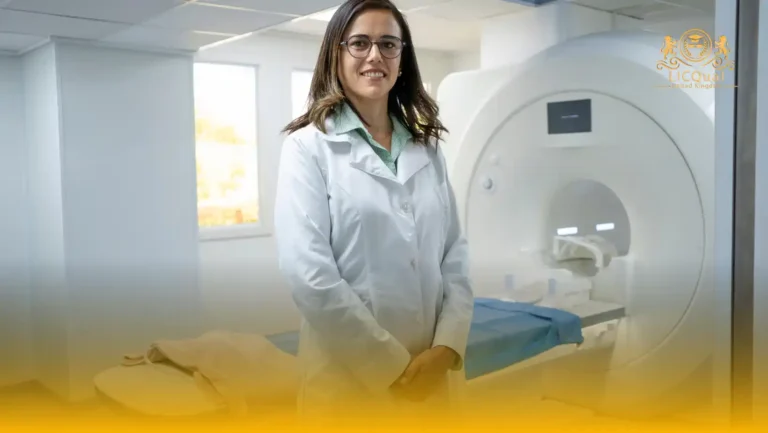The LICQual Level 3 Certificate in Pharmacy Practice Research (Cert Pharmacy Practice Research) is a specialised qualification designed for learners who wish to develop advanced knowledge and practical skills in research methodologies, data analysis, and evidence-based pharmacy practice. This course equips learners with the tools to critically evaluate pharmaceutical studies, conduct research projects, and apply findings to improve patient care and professional practice.
This qualification is aimed at professionals who wish to enhance their career prospects, expand their knowledge, and strengthen their Continuing Professional Development (CPD). Learners will explore key topics such as research design, ethical considerations, data collection and analysis, interpretation of results, and the application of evidence-based research to pharmacy practice. By integrating theoretical knowledge with practical research skills, the course ensures learners are prepared to contribute effectively to clinical, academic, and professional pharmacy settings.
Centres delivering this qualification must ensure that competent and qualified staff, along with access to current learning materials, research resources, and technological tools, are available to provide a high-quality learning experience. Structured guidance, access to research databases, and practical support enable learners to successfully complete assignments, projects, and assessments.
Completing the LICQual Level 3 Certificate in Pharmacy Practice Research provides learners with a recognised qualification that enhances professional competence, supports evidence-based decision-making, and opens pathways for career progression in pharmacy practice, healthcare research, and academic roles. This course is ideal for learners committed to advancing their research expertise and contributing to the development of high-quality, patient-centred pharmacy services.
Course Overview
Qualification Title
LICQual Level 3 Certificate in Pharmacy Practice Research (Cert Pharmacy Practice Research)
Total Units
6
Total Credits
24
GLH
120
Qualification #
LICQ2201148
Qualification Specification
To enroll in the LICQual Level 3 Certificate in Pharmacy Practice Research (Cert Pharmacy Practice Research), applicants must meet the following criteria:
|
Qualification# |
Unit Title |
Credits |
GLH |
|---|---|---|---|
|
LICQ2201148-1 |
Introduction to Pharmacy Practice Research |
4 |
20 |
|
LICQ2201148-2 |
Research Design and Methodology |
4 |
20 |
|
LICQ2201148-3 |
Data Collection and Analysis in Pharmacy Research |
4 |
20 |
|
LICQ2201148-4 |
Ethical Considerations and Regulatory Compliance |
4 |
20 |
|
LICQ2201148-5 |
Evidence-Based Practice and Critical Appraisal |
4 |
20 |
|
LICQ2201148-6 |
Emerging Trends and Continuing Professional Development in Pharmacy Research |
4 |
20 |
By the end of this course, learners will be able to:
Unit 1: Introduction to Pharmacy Practice Research
Learners will be able to:
- Understand the principles and purpose of pharmacy practice research.
- Describe the roles of research in improving patient care and pharmacy services.
- Identify key concepts, terminology, and approaches used in pharmacy research.
- Analyse the impact of research on healthcare policy and practice.
Unit 2: Research Design and Methodology
Learners will be able to:
- Explain different research designs and their applications in pharmacy practice.
- Develop appropriate research questions and hypotheses.
- Select suitable methodologies for qualitative, quantitative, and mixed-methods studies.
- Evaluate the strengths and limitations of various research approaches.
Unit 3: Data Collection and Analysis in Pharmacy Research
Learners will be able to:
- Apply appropriate data collection techniques in pharmacy research.
- Analyse and interpret data using statistical and qualitative methods.
- Evaluate the reliability and validity of research findings.
- Present data in a clear and professional format suitable for pharmacy practice.
Unit 4: Ethical Considerations and Regulatory Compliance
Learners will be able to:
- Understand ethical principles in pharmacy research, including patient consent and confidentiality.
- Apply regulatory and legal requirements to ensure compliance in research activities.
- Assess potential ethical dilemmas and implement appropriate solutions.
- Demonstrate responsible and ethical conduct in research practice.
Unit 5: Evidence-Based Practice and Critical Appraisal
Learners will be able to:
- Critically appraise research studies for quality and relevance to pharmacy practice.
- Apply evidence-based findings to support clinical and professional decision-making.
- Evaluate the impact of research on patient outcomes and service improvement.
- Integrate research evidence into practice guidelines and policy development.
Unit 6: Emerging Trends and Continuing Professional Development in Pharmacy Research
Learners will be able to:
- Identify current trends, innovations, and challenges in pharmacy research.
- Understand the role of technology and digital tools in modern research.
- Develop strategies for Continuing Professional Development (CPD) to enhance research competence.
The LICQual Level 3 Certificate in Pharmacy Practice Research (Cert Pharmacy Practice Research) is designed for pharmacists, healthcare professionals, and graduates who want to specialize in evidence-based pharmacy practice, research methodologies, and data analysis. This internationally accredited pharmacy practice research certification is ideal for those seeking CPD credits, career advancement, and recognition in global healthcare and pharmaceutical sciences. Whether you are already practicing or planning to enter the field, this program equips you with the skills and qualifications to stand out in pharmacy research and healthcare innovation.
1. Practicing Pharmacists
- Professionals aiming to expand into pharmacy practice research and evidence-based care
- Interested in clinical trials, patient-centered outcomes, and pharmaceutical sciences
- Seeking accredited pharmacy practice research certification for career growth
- Looking to earn CPD credits recognized internationally
- Committed to improving patient outcomes through applied research
2. Healthcare Professionals in Clinical Settings
- Doctors, nurses, and allied health staff collaborating with pharmacy teams
- Those aiming to strengthen interdisciplinary research and patient safety initiatives
- Professionals seeking structured training in pharmacy practice research methods
- Interested in international healthcare qualifications for career progression
- Focused on enhancing treatment compliance and healthcare delivery
3. Pharmacy and Life Sciences Graduates
- Recent graduates seeking advanced pharmacy practice research certification
- Individuals preparing for international healthcare and pharmaceutical careers
- Looking to build expertise in research methodologies and data analysis
- Interested in flexible online learning with accreditation
- Focused on boosting employability in competitive healthcare markets
4. International Researchers and Scientists
- Professionals seeking globally recognized pharmacy practice research qualifications
- Those aiming to meet international accreditation standards
- Interested in CPD credits for career advancement abroad
- Looking to expand knowledge in pharmaceutical sciences and healthcare innovation
- Committed to strengthening professional credibility worldwide
5. Clinical Researchers and Academics
- Researchers focusing on pharmacy practice, drug safety, and healthcare outcomes
- Academics seeking structured certification for teaching and training
- Professionals aiming to contribute to evidence-based pharmacy studies
- Interested in advanced methodologies for healthcare research
- Looking to align with international healthcare education standards
6. Healthcare Administrators and Policy Makers
- Administrators overseeing pharmacy services and healthcare research programs
- Policy makers aiming to improve healthcare delivery through evidence-based practice
- Those seeking insights into pharmacy practice research frameworks
- Interested in accreditation and compliance standards for healthcare systems
- Focused on strengthening organizational credibility and governance
7. Professionals Seeking Career Advancement
- Individuals aiming for leadership roles in pharmacy and healthcare research
- Those wanting to stand out with accredited pharmacy practice research certification
- Interested in international recognition and CPD credits
- Looking for career growth in hospital, clinical, or academic settings
- Committed to lifelong learning and healthcare excellence
Centres delivering the LICQual Level 3 Certificate in Pharmacy Practice Research (Cert Pharmacy Practice Research) must adhere to high standards to ensure learners receive quality training, effective support, and compliance with international best practices. Key requirements include:
- Qualified and Experienced Staff: Trainers and assessors must hold relevant qualifications and professional experience in pharmacy, healthcare, or research methodology.
- Comprehensive Learning Resources: Centres must provide access to up-to-date textbooks, research journals, case studies, statistical software, and digital resources relevant to pharmacy practice research.
- Facilities and Equipment: Centres should ensure classrooms, IT infrastructure, laboratory or simulation facilities (where applicable), and access to online learning platforms are adequately equipped to support effective learning delivery.
- Assessment and Quality Assurance: Centres must implement robust assessment procedures, internal verification, and quality assurance systems to maintain high academic and professional standards.
- Learner Support Services: Academic guidance, mentoring, and career development support must be available to help learners achieve successful outcomes.
- Access to Technology: Learners must have access to computers, reliable internet connectivity, and online databases to support research, assignments, and project work.
- Compliance with Standards: Centres must adhere to LICQual policies, ensuring ethical training practices, learner safety, and regulatory compliance.
Meeting these requirements enables centres to deliver a high-quality learning experience, ensuring learners gain the knowledge, practical skills, and professional competence required to excel in pharmacy practice, clinical research, and evidence-based healthcare services.
Assessment and Verification
All units within this qualification are subject to internal assessment by the approved centre and external verification by LICQual. The qualification follows a criterion-referenced assessment approach, ensuring that learners meet all specified learning outcomes.
To achieve a ‘Pass’ in any unit, learners must provide valid, sufficient, and authentic evidence demonstrating their attainment of all learning outcomes and compliance with the prescribed assessment criteria. The Assessor is responsible for evaluating the evidence and determining whether the learner has successfully met the required standards.
Assessors must maintain a clear and comprehensive audit trail, documenting the basis for their assessment decisions to ensure transparency, consistency, and compliance with quality assurance requirements.







